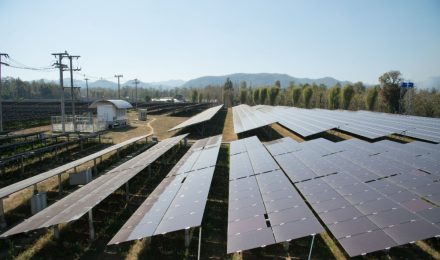Innovation and technology have created opportunities for advancements in several industries, including solar energy. More homes get built with solar panels today because of its ability to convert sunlight into energy. Solar power is also the main source of electricity in many parts of the world. Being a source of energy is one of the most notable reasons solar energy is growing.
However, while solar energy is growing, it is crucial to continue promoting solar energy education and collaborations with industry. This will ensure the creation of a sustainable and prosperous future for generations to come.
This article will discuss solar energy, solar energy education and the benefits of it. Then it will discuss how partnerships with industry can be successful. Lastly, it will conclude with ways to bridge the gap between academia and practice.
What is Solar Energy?
Solar energy is energy that is generated by the power of the sun. That generation or conversion into energy happens by using devices such as solar panels. These panels convert sunlight into electricity or heat.
Another way that solar energy is generated is through technologies like solar water heaters. The heaters use the sun’s heat to warm water for use in homes and businesses.
What are the Uses and Benefits of Solar Energy
The benefits of solar energy are numerous. In addition to being a clean and renewable source of energy, another major benefit includes the reduction of dependence on fossil fuels. Solar energy also helps reduce greenhouse gas emissions. Although the cost of installing solar panels is initially high, homeowners enjoy and benefit from long-term savings on energy bills and expenses.
Solar energy is used in a variety of ways including, but not limited to:
- Electricity generation – homes, businesses, entire communities
- Heating – homes, buildings, and pools
- Transportation – solar-powered vehicles
- Portable devices – phone chargers, calculators
With so many benefits and uses, it is no surprise that educating on solar energy is vital.
Solar Energy Education
One of the most notable facts about solar energy is that educating about it can begin at almost any age. Some classes or educational settings include:
Engineering Classes
Classes that focus on the design, development, and implementation of solar energy systems. Engineering classes typically cover subjects such as solar panel technology, energy storage systems, and system integration.
Science Classes
Most students love chemistry and physics. Both classes help students understand the science behind solar energy and how solar panels work. They will cover electricity and include projects that students love.
Vocational Education Classes
Both high schools and colleges offer vocational classes in solar energy. They teach students practical skills related to solar panel installation, maintenance, and repair. These classes also cover wiring, electrical safety, and system troubleshooting.
What are the Benefits of Solar Education
While the ways listed above aren’t the only ways that solar energy education happens, these settings focus on content depending on the education level and specific field of study. However, even at community round-tables, discussions about solar energy are crucial.
Overall, solar energy education is important because it:
- Pomotes the use of renewable energy sources
- Helps individuals and communities become more energy independent
- Creates job opportunities for those trained in solar energy
- Inspires innovation and creativity, as well as the development of solar technologies and applications
- Contributes to better sustainable living practices that reduce negative impacts on the environment
In addition to recycling, bulk shopping, and using water wisely, society is looking for more ways to support and develop a sustainable and low-carbon future. Therefore, solar energy education and partnerships with industry are increasingly critical.
What are the Benefits of Solar Energy Education and Partnerships with Industry
Workforce
With the demand for solar energy growing, there will be a need for skilled workers who can design, install, maintain, and repair solar systems. Solar energy education will create a pipeline of trained workers who can meet the workforce demands.
Increased Awareness
Education about solar energy will help promote the adoption of solar energy and increase awareness and understanding. the more that people understand the benefits of solar power, the more they will be encouraged to use solar technology in their homes and businesses.
Innovative Advancements
Partnerships between educational institutions and the solar energy industry can drive Innovation and technology advancements. This can lead to improvements and the efficiency, performance, and cost-effectiveness of solar energy which will make it more accessible and affordable for everyone.
Dealing With Climate Change
The admission of greenhouse gas must be addressed immediately. Solar energy education and partnerships will support efforts to address climate change. This will promote the use of renewable energy sources.
Sustainable Development
More households are looking for ways to live more sustainably. Solar energy is a key component of sustainable development. Therefore education and partnerships can promote the adoption of sustainable practices, such as reducing reliance on fossil fuels.
Overall, solar energy education and partnerships with industry has many beneficial and residual effects on society. However, for some, bridging the gap between solar energy education and practice seems like a tall task. However, there are ways to do it that can be relatively easy to implement. Some of those ways include:
Support Research and Development
In areas with gaps between academic knowledge and practical application, encouraging research and development in solar energy technology is crucial.
Encourage Collaborations
Collaborations between solar energy researchers and industry practitioners can have a lot of success. Supporting ways to promote knowledge sharing and fostering innovation is beneficial in closing the gap.
Provide Hands-On Training
Allow opportunities for students and professionals to get hands-on experience with solar energy technology. This can be done through internships, workshops, and other training programs.
Engage With Industry Associations
Associations and organizations are the best way to stay up to date with the latest trends and developments and any industry, including solar energy. that gives individuals opportunities for collaboration and further knowledge sharing.
Promote Awareness
The more people know about a topic, including solar energy, the more likely they are to engage in finding solutions.
Conclusion
In conclusion, solar energy education is essential for promoting sustainable practices, creating job opportunities, and inspiring innovation. By educating students as early as possible and creating partnerships with industry, more families, communities, and society at large will adopt the use of solar energy. Not only adoption, the use of solar energy will be accelerated and society can reap the benefits of a cleaner and more sustainable future.
Lastly, the partnerships will also help bridge the gap between academia and practice. This will increase awareness and understanding of solar energy’s benefits. For all these reasons, it is crucial to continue promoting solar energy education and collaborations with industry.



